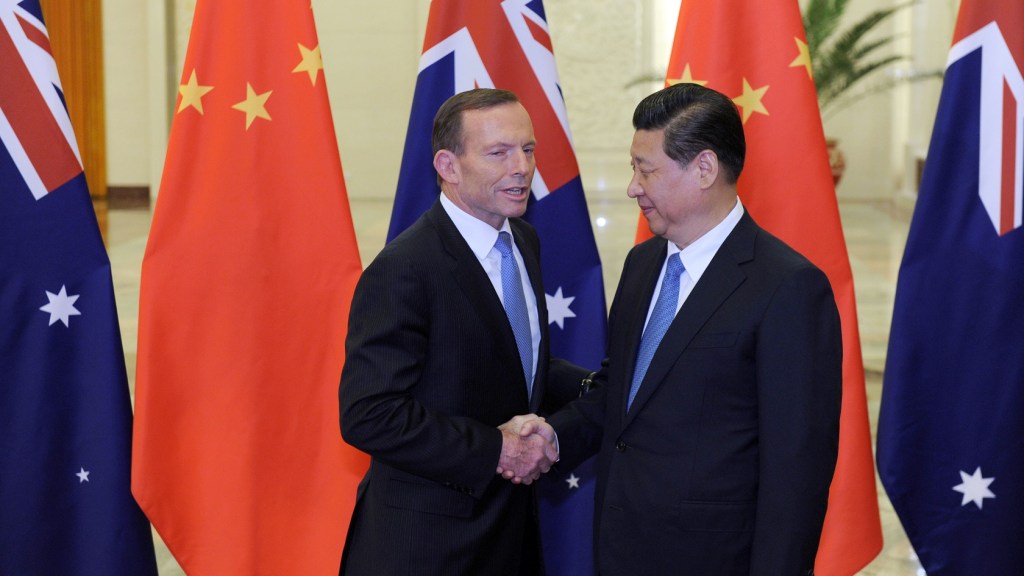
Former Australian Prime Minister Tony Abbott has recently criticized current Prime Minister Anthony Albanese for his diplomatic engagement with China, framing it as a retreat from Australia’s interests. Abbott’s comments come as he continues to voice strong opinions on China’s influence, despite his own record of engagement that some critics view as hypocritical.
In a podcast with the Institute of Public Affairs, Abbott condemned Albanese’s trip to Beijing, arguing that it signaled a retreat from confronting China. He claimed that Australia’s economic ties with China were becoming increasingly dangerous, stating, “The more exposed we are to China, the more vulnerable we are” to trade weaponization. He insisted that Australia should be diversifying its trade relationships rather than strengthening economic ties with China.
Abbott’s criticism of Albanese’s visit has drawn attention to his own past actions during his tenure as prime minister. He negotiated a free trade agreement with China in 2015, despite the growing awareness of China’s human rights abuses and aggressive regional posturing. Critics have noted the contradiction in Abbott’s present stance, especially given that he had previously invited Chinese President Xi Jinping to address the Australian Parliament and promoted the idea that China was on a path to liberalization.
Reflecting on the past, Abbott defended his earlier actions by suggesting that he had hoped for a more democratic China, despite the well-documented repression of dissent and the treatment of the Uyghurs at that time. He acknowledged that the situation in China had changed, but many observers argue that he turned a blind eye to the growing authoritarianism while pursuing economic agreements.
The discourse around Abbott’s remarks has involved other prominent figures and organizations, including News Corp and its commentators. Peta Credlin, Abbott’s former chief of staff, criticized Albanese for his diplomatic approach, labeling it a failure to protect Australian interests. This stance contrasts sharply with her previous support for the free trade agreement and other engagements with China during Abbott’s leadership.
Furthermore, Michaelia Cash, the shadow foreign affairs spokesperson, has joined the chorus of criticisms against Albanese’s approach, despite having previously exaggerated the benefits of the same trade agreement they now question. Angus Taylor, the Coalition’s defence spokesman, faced backlash for suggesting military action against China, only to later clarify his position in a follow-up interview.
The contrasting narratives illustrate a broader debate within Australian politics about how to engage with China. Critics argue that while Abbott and his allies now present themselves as staunch defenders of Australian sovereignty, they have previously supported policies that many believe compromised it. This ongoing discussion reflects the complexities of international relations and the challenge of balancing economic interests with national security concerns.
As Australia navigates its relationship with China, Abbott’s remarks serve as a reminder of the shifting positions and the contentious history of Australia’s foreign policy. The implications of these debates will continue to resonate as the government seeks to define its stance in an increasingly polarized global landscape.






